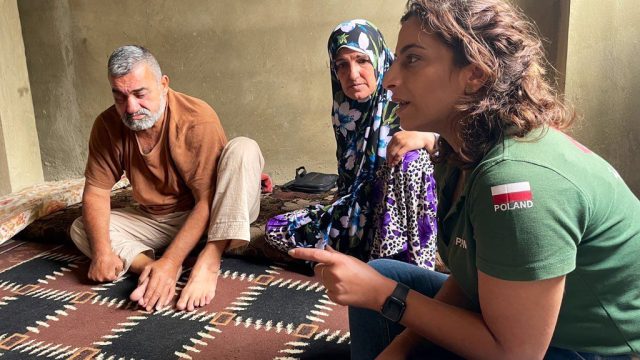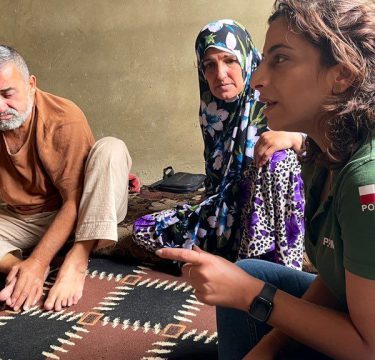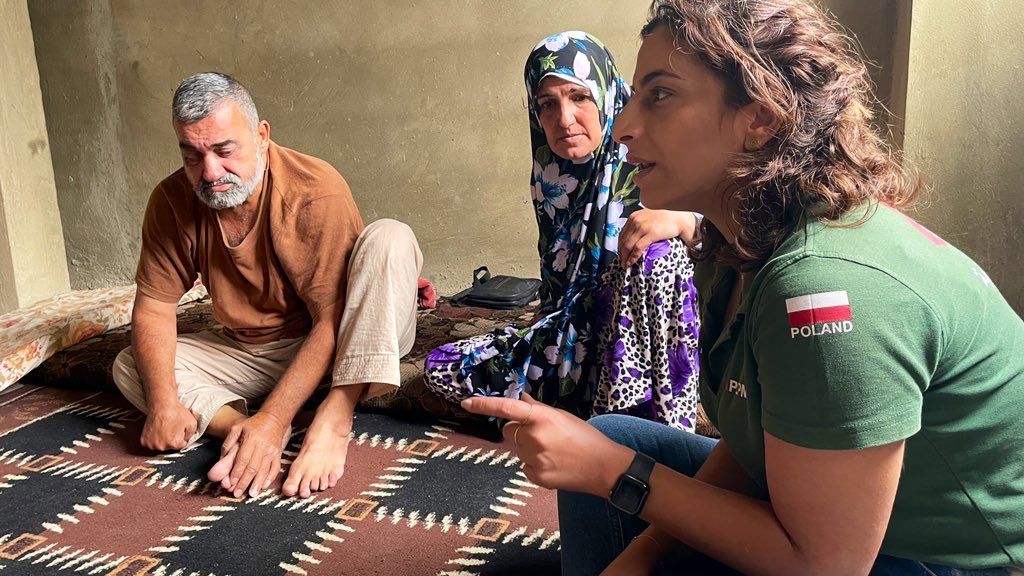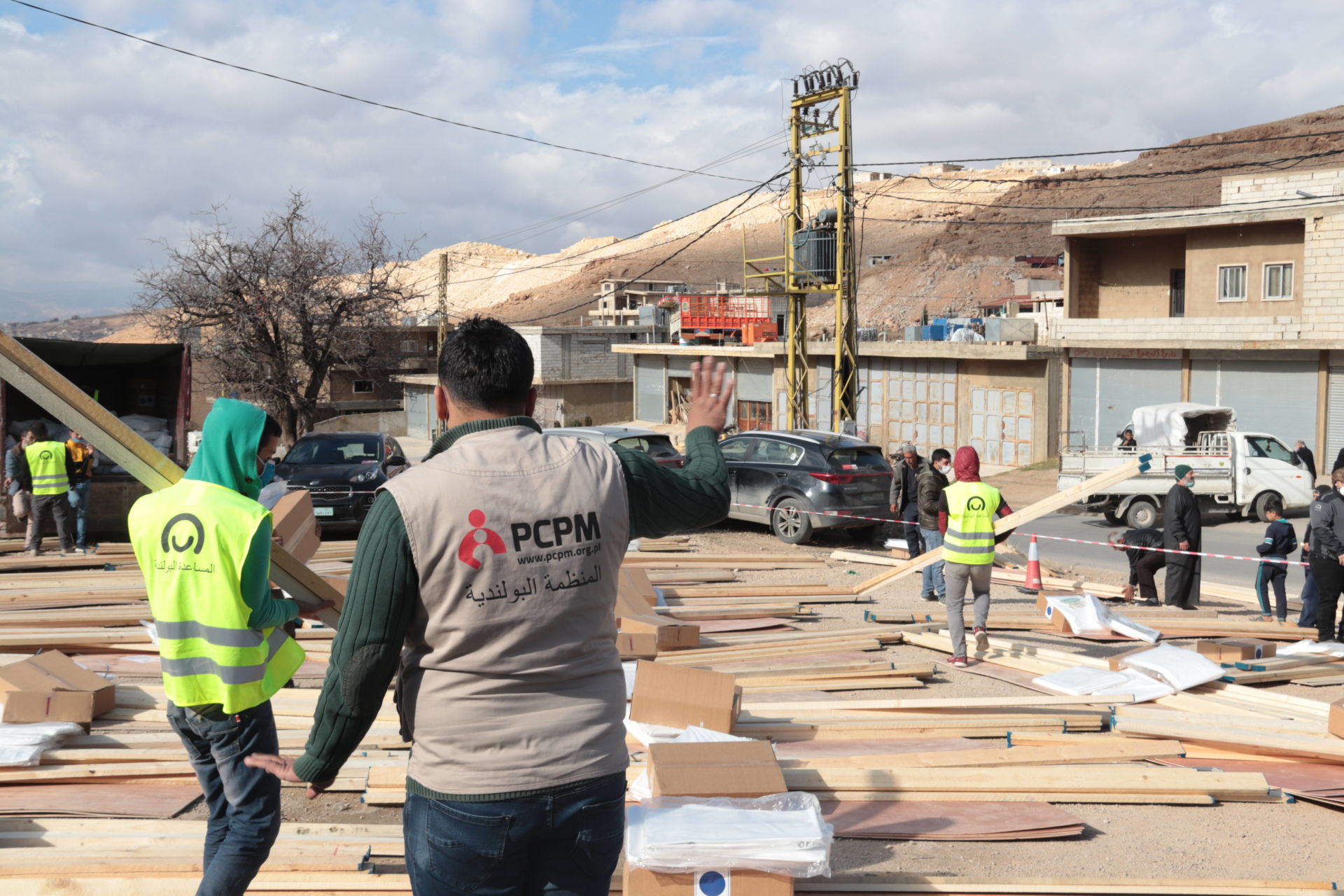The rent subsidy program implemented in Lebanon by PCPM supports the poorest Lebanese and Syrians



The PCPM Foundation implements the ‘Cash for Rent’ program – rent subsidies for the poorest inhabitants of Lebanon – in the capital Beirut and its vicinity, in the second most populous city – Tripoli, and in the Akkar province in northern Lebanon. It is in this border region that PCPM support is particularly important for the numerous refugees from nearby Syria.
The civil war in Syria has been going on since 2011 and is described by the UN as one of the greatest humanitarian and refugee crises of our time and as an endless cause of suffering for millions of people. Many of them seek refuge in neighboring Lebanon, a country already severely affected by the economic and social crisis. Many refugees from Syria find living conditions in Lebanon even worse than in their own country.
One of the families that benefit from the PCPM’s help is a Syrian couple, Mohamad and Saada, who live in Kobayat, northern Lebanon. For over 6 months, the costs of renting their home have been covered by the PCPM. Their situation is unique because in the vast majority of cases only part of the rent is subsidized, while this particular family’s cost of housing – due to the lack of any other sources of income – is fully covered by the Foundation.

‘I fled Syria in 2017, in 2020 my husband joined me here in Lebanon. First, I ended up in a refugee camp, then we managed to move to this house, where we are now, but the conditions at the beginning were terrible – the building was half finished, there were no windows, no doors, and instead of a floor there was rough concrete. There was no electricity, so we used candles. We slept on mattresses’ – says Saada, 49, who, for security reasons and the threat to her family from the Syrian regime, does not want to give her surname.
‘I spent 7 years in a regime prison in Syria, I was severely mutilated there and now I am crippled. Earlier, before the war in Syria, I was a driver, earning well enough to feed my whole family. Now we have nothing, they ruined our lives. We are dependent, we have no money’ – adds her 56-years-old husband, Mohamad.
This is just one example of Syrian refugees living with the help of NGOs. Food stamps are provided by the World Food Program run by the United Nations, housing – and previously also health care – by the PCPM Foundation. The operation of a nearby medical clinic, where Syrian refugees used basic medical services, was suspended because the funds for its maintenance ran out.
The ‘Cash for Rent’ program has been implemented and developed by the Polish Center for International Aid for over 8 years thanks to funding from the ‘Polish Aid’ project run by the Ministry of Foreign Affairs of Poland. Since 2020, when more than 2 million refugees from Syria have flowed into Lebanon, the program has been of particular importance in ensuring at least a living minimum for the local population. Although 10 years have passed since the outbreak of the civil war in Syria and the intensity of fighting has decreased, it is still impossible for many refugees to return to Syria. The vast majority of them fear the activities of armed groups, forced conscription, arrests and torture. The ‘Cash for Rent’ program has thus become a hallmark of the PCPM and an important pillar of assistance for refugees who live in poverty and do not receive comprehensive humanitarian assistance from the UNHCR.
It is worth remembering, however, that from the beginning of the implementation of the ‘Cash for Rent’ program, its beneficiaries are primarily Lebanese. Lebanon’s catastrophic economic situation means that a large part of the population is unable to provide themselves with adequate living conditions. This applies not only to the countryside, but also to the capital – Beirut. Gratitude towards the PCPM for the implementation of the ‘Cash for Rent’ program in Beirut has been repeatedly expressed by the city authorities.
‘In recent months, 103 families have been evicted from our neighborhood because they were unable to pay their rent. Thanks to the funds provided by the PCPM, many other families are saved from eviction. The ‘Cash for Rent’ program is extremely necessary for us. Just like other help that we, as a district, receive from the PCPM Foundation – renovation and creation of local infrastructure, installation of street lighting, securing hundreds of meters of electrical wires that caused the risk of fires, installation of solar panels in the fire station or fire training’ – tells us George Krikorian, a representative of the Bourj Hammoud district in Beirut.
He adds that the PCPM is distinguished from other aid organizations by the very high effectiveness of its activities and assistance tailored to the real needs of residents.
‘Other organizations come with ready-made solutions and ideas, on the principle take what we give or leave empty handed. The PCPM first listens to our needs and then prepares a project of action and help. Thanks to this, the effectiveness of this help and the effectiveness of the money spent is much higher than the help provided to us by people who have never been here. Let me give you an example. Some of our poorest residents received phone calls from one of NGOs. Now they are switched off because no one could cover the cost of SIM cards. The tablets they received also do not work, because there is no way to charge the battery due to the lack of electricity’ – adds Krikorian.
The PCPM Foundation runs the largest humanitarian aid program implemented by a Polish NGO in Lebanon on the border with Syria. You can help, e.g. by clicking on the link.
For ten years of the mission of the Polish Center for International Aid in Lebanon, in the years 2012-2021, PCPM has implemented over 40 aid projects worth USD 95 million. Funds for PCPM activities in Lebanon come from various sources: 55% of the costs are covered by the Polish Aid program coordinated by the Polish Ministry of Foreign Affairs, 30% are covered by UN agencies, and 12% of the value of projects is financed from EU funds. As part of cooperation with the Polish Aid program run by the Ministry of Foreign Affairs, PCPM is implementing a program to support local governments and local communities affected by the COVID-19 pandemic and the economic crisis. The aid program is scheduled for 2021-2023.